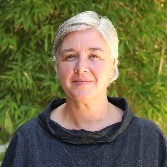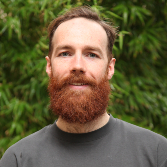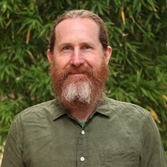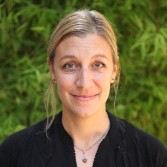Our people are our greatest asset in delivering science that matters. With a workforce of over 80 talented researchers, ARI has the required scientific expertise to meet the challenges faced by modern governments.
Our staff are scientifically and technically skilled in terrestrial, freshwater and estuarine ecology, behaviour change and analytical data sciences. Our staff are trusted to undertake research and monitoring to address complex policy problems for Victoria, Australia and increasingly internationally.
ARI is structured into 3 sections and 13 research programs that span freshwater, estuarine, marine and terrestrial environments. The institute is headed by a senior leadership team, which includes two high level science quality and communication roles. The Senior Leadership Team, program managers and research and technical staff are profiled below. ARI’s business capabilities are supported by our business and administration team. Our staff profiles describe main areas of expertise and background and where relevant, include key projects and a link to publications.
Many others not listed here also contribute to the work at ARI including short term staff, staff in the DEECA Graduate Program, project partners, contractors, collaborators, students and volunteers.
For general enquiries on the Institute or environmental issues, contact the DEECA Customer Service Centre.
Staff profiles:Our Leadership Team






| ARI Director & Chief Biodiversity Officer | James Todd | james.todd@deeca.vic.gov.au |
| Priority Projects | Dr Lindy Lumsden | lindy.lumsden@deeca.vic.gov.au |
| Community Ecology Section Co-Manager | Tim O'Brien | tim.obrien@deeca.vic.gov.au |
| Community Ecology Section Co-Manager | Dr Tracey Regan | tracey.regan@deeca.vic.gov.au |
| Principal Research Scientist Community Ecology | Dr Josephine MacHunter | josephine.machunter@deeca.vic.gov.au |
| Principal Scientist Vegetation | Dr Steve Sinclair | steve.sinclair@deeca.vic.gov.au |
| Senior Scientist Ecological Modelling & Statistics | Dr Matt White | matt.white@deeca.vic.gov.au |
| Senior Scientist Wildlife Ecology | Dr Kasey Stamation | kasey.stamation@deeca.vic.gov.au |
| Senior Scientist Vegetation Ecology & Threatened Flora | Claire Moxham | claire.moxham@deeca.vic.gov.au |
| Wildlife Ecology Section Manager | Dr Jenny Nelson | jenny.nelson@deeca.vic.gov.au |
| Threatened Fauna Program | Dr Pia Lentini | pia.lentini@deeca.vic.gov.au |
| Wildlife Management Program | Dr Dave Ramsey | david.ramsey@deeca.vic.gov.au |
| Predator Management Program | Dr Alan Robley | alan.robley@deeca.vic.gov.au |
| Applied Aquatic Ecology Section Manager | Dr Jarod Lyon | jarod.lyon@deeca.vic.gov.au |
| Aquatic Biodiversity Program | Dr Chris Jones | chris.jones@deeca.vic.gov.au |
| Data and Modelling | Dr Jian Yen | jian.yen@deeca.vic.gov.au |
| Fish Population Evaluation and Recovery Actions | Dr Zeb Tonkin | zeb.tonkin@deeca.vic.gov.au |
| Fisheries Research and Assessment Program | Justin O'Connor | justin.o'connor@deeca.vic.gov.au |
| Population Processes Program | Dr Wayne Koster | wayne.koster@deeca.vic.gov.au |
| Riparian and Wetland Ecology Program | Dr Ashley Sparrow | ashley.sparrow@deeca.vic.gov.au |
| Science Manager – Science Impact and Collaboration | Andrew Geschke | andrew.geschke@deeca.vic.gov.au |
| Acting Manager – Business Services | Shah Mansoor Khalil | mansoor.khalil@deeca.vic.gov.au |
Senior Leadership Team






James Todd | Institute Director/Chief Biodiversity Officer James is the Chief Biodiversity Officer and Director of ARI, leading the newly formed Biodiversity Research and Information branch in DEECA’s Biodiversity Division. BRI undertakes world-class, strategic applied research and strategic information provision to answer key policy and operational questions affecting ecologically sustainable land and water management. Part of this includes leadership and accountability for ARI in continuing a strong tradition of delivering robust, contemporary research in ecology, the environment and in people-nature dimensions. He has extensive experience and a proven track record in evidence-based policy, with more than 25 years working with DEECA in the development and implementation of a range of high-impact biodiversity policies and programs, including a number of years as Executive Director Biodiversity. |
Andrew Geschke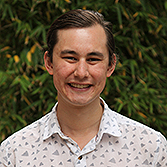 | Science Manager, Science Impact & Collaboration Andy leads ARI’s Science Impact and Collaboration Program to grow the visibility and understanding of ARI's science across government and the environment sector. The program provides advice, training and communications support (including delivering ARI's Subscriptions) to elevate our scientists reach and impact. Andy connects people with our science stories by combining his environmental science background with technology. Andy’s applies his expertise in storytelling, photography, social media, online facilitation, virtual reality, GIS and design to share ARI’s science. Selected projects: ARI Project Map ARI Subscriptions Walking with Scientists Selected publications andrew.geschke@deeca.vic.gov.au |
Dr Jarod Lyon 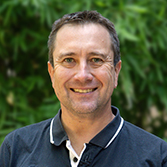 | Aquatic Ecology Section Leader Jarod leads a team that examines various aspects of restoration ecology, ecological management plans and intervention-based research that helps inform management and policy decisions. The team has strong links across a range of organisations, including government departments, Catchment Management Authorities and Universities. Jarod has many years’ experience as a freshwater fish scientist, including planning for, undertaking and monitoring the restoration of woody habitat into rivers and streams, understanding the impact of bushfires on aquatic systems, threatened species management and angler liaison. Selected projects: Carp biomass estimate Tracking Australian eel migration using satellites Murray River resnagging Selected publications jarod.lyon@deeca.vic.gov.au |
Dr Jenny Nelson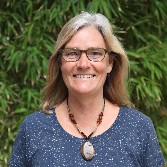
| Wildlife Ecology Section Leader Jenny leads a team that conducts applied research on threatened and introduced vertebrate fauna, and wildlife management issues. Jenny’s research has focused on designing robust survey programs and collecting high quality data to inform management of threatened fauna, particularly in relation to timber harvesting. Her work deals with a wide range of species and their habitats, including arboreal (particularly Greater Gliders and Leadbeater’s Possums) and ground-dwelling mammals, bats, reptiles, owls and cockatoos. She has also developed and implemented survey methods and monitoring programs for Spotted-tailed Quolls, Smoky Mouse and White-footed Dunnarts. Selected projects: Leadbeater’s Possum – camera surveys in trees Estimating Greater Glider density to guide on-ground management actions Regional Forest Agreement (Landscape Scale Surveys) Selected publications jenny.nelson@deeca.vic.gov.au |
Tim O'Brien 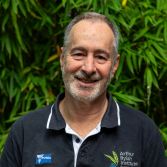
| Community Ecology Section Co-Leader Tim leads a team whose research includes the development of specialist spatial modelling and decision support tools to inform policy and management of biodiversity, structured decision analysis processes for complex ecological issues and the design of assessment programs for threatened and introduced taxa including vegetation, birds, reptiles and mammals. Tim and his team work closely with a broad range of scientific and management organisations across south-east Australia as well as internationally. Selected projects: Adaptive Learning: effectiveness of on-ground management actions Assessing the conservation benefits of revegetation Selected publications tim.obrien@deeca.vic.gov.au |
| Dr Tracey Regan
| Community Ecology Section Co-Leader Tracey’s research interests are broad, encompassing ecological risk assessment, quantitative applied ecology, and decision science. Tracey uses the principles of structured decision making coupled with ecological models to help navigate complex management questions to support evidence-based decision making within DEECA Tracey is also involved in the development and evaluation of the IUCN Red List of Ecosystems, a global standard for ecosystem risk assessment. She was a member of the team that won the 2015 Australian Eureka Prize for this work. Selected projects: Melbourne Strategic Assessment Program - population viability analysis models for threatened species Risk assessment of alpine ecosystems under climate change Framework for prioritising wetland management Selected publications tracey.regan@deeca.vic.gov.au |
Dr Ashley Sparrow 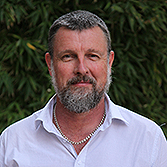 | Principal Research Scientist (Aquatic Ecology) Ashley leads the Riparian and Wetland Ecology Program and is principal scientist for strategic projects and staff development in the Applied Aquatic Ecology Section. Whilst currently focused on catchment, floodplain and wetland processes and their management, he has a broad background in landscape, vegetation and soil ecology, and experience across a range of ecosystem types, from hot deserts to temperate rainforests to Antarctic dry valleys. His skill sets include systems thinking, participatory action research, monitoring and evaluation, and biostatistics. Selected publications ashley.sparrow@deeca.vic.gov.au |
Shah Mansoor Khalil 
| Acting Manager - Business & Administrative Services Mansoor is the Acting Manager for ARI's business services. He has experience as senior executive with both public and private sectors, with experience in Strategy and Planning, Business and Operations Planning, Supply chain and Procurement, Financial Planning, Project management and leadership. He is currently working with ARI to support continuous improvements in ARI's business process. Mansoor.khalil@deeca.vic.gov.au |
Our staff





 <
<
Dr Nevil Amos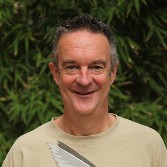
|
Nevil’s areas of interest span from fire ecology and spatial modelling to landscape genetics and bird evolutionary ecology. Much of his work uses geographic information systems to model expected patterns of abundance of fauna and providing user friendly interfaces for complex modelling and reporting
systems on potential outcomes of land management options. He also co-ordinates fieldwork on the Eastern Yellow Robin with collaborators at Monash University. Selected projects: Fire Analysis Module for Ecological values (FAME) Wetland Monitoring and Assessment Program for water for the environment (WetMAP) Evolutionary ecology and genetics of the Eastern Yellow Robins Selected publications nevil.amos@deeca.vic.gov.au |
Frank Amtstaetter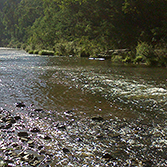 |
Frank has over 25 years of experience in fisheries research and management. The focus of Frank’s work relates to assessing the responses of native fish to various human-induced factors, such as altered flow regimes, recreational, commercial and subsistence fisheries, and habitat degradation. More recently,
Frank has been investigating the effects of fish passage remediation and the effectiveness of environmental flow releases on riverine and wetland fish populations. Selected projects: Victorian Environmental Flows Monitoring and Assessment Program (VEFMAP) Wetland Monitoring and Assessment Program for water for the environment (WetMAP) Selected publications |
Khorloo Batpurev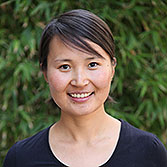
|
Khorloo works on terrestrial flora and decision tools that inform conservation planning, which utilises her broad skills in flora surveys, field and GIS based mapping and spatial analysis. Her research has particularly focused on adaptive management of Natural Temperate Grasslands, she has contributed
to a wide range of spatial products delivered by ARI, including statewide rainforest extent and type, estuarine vegetation condition along Victoria’s coast and the distribution of eucalypt stem age across East Gippsland forests. Selected projects: Melbourne Strategic Assessment Regional Forest Agreement (Landscape Scale Surveys) Quantifying ecosystem condition using expert opinion in Gobi Desert, Mongolia Selected publications khorloo.batpurev@deeca.vic.gov.au |
Dr Matt Bruce
|
Matt’s main area of interest is improving management of threatened species and ecological communities through the design and implementation of ecological monitoring and management response models. He is also part of a team developing new approaches to prioritising research projects that are relevant
to management. Matt has experience in studying the response of flora, fauna and carbon stocks to different fire regimes in Victorian forests. He maintains an interest in how human and non-human animal behaviour can be applied to conservation problems. Selected projects: Biodiversity Knowledge Framework Melbourne Strategic Assessment Program Fire regimes, carbon levels and biodiversity Selected publications matthew.bruce@deeca.vic.gov.au |
Dave Bryant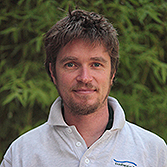
|
Dave’s main area of research is terrestrial fauna although he also has a background in freshwater ecology. He has worked on most faunal groups including arboreal and ground dwelling mammals, bats, birds, reptiles, frogs, freshwater and terrestrial invertebrates and fish. More recently he has specialised
in fauna surveys and monitoring of threatened species within grassland communities on the basalt plains. He is familiar with a variety of survey techniques and actively explores new ways to detect and record fauna. Selected projects: Melbourne Strategic Assessment Program Plains Wanderer - development of an acoustic recogniser Selected publications david.bryant@deeca.vic.gov.au |
Amanda Bush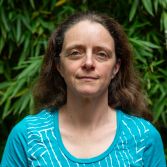 |
Amanda's main area of research is determining ways to improve methods of monitoring cave dwelling bats. She also studies the distribution of terrestrial and arboreal mammals in forest habitats with a focus on threatened species, and has extensive field experience particularly in camera trapping and
insectivorous bat surveys. Selected projects: Discovering the secrets of Victorian small bats Artificial hollows for Leadbeater’s Possum Leadbeater's possum - camera surveys in trees Extensive new knowledge on threatened species |
Justin Cally
|
Justin’s research is split between the Wildlife Management and Biometrics programs. As part of the Wildlife Management program, Justin investigates the management and environmental impacts of introduced and native species across Victoria. Within the Biometrics program, Justin applies quantitative methods
across a broad range of Wildlife Ecology research areas. To help assess impacts and drivers of species occurrence, distribution, and trends, he uses a variety of ecological modelling techniques. Justin is knowledgeable across a range of related areas: data engineering, Bayesian statistics, hierarchical
mixed models, species distribution models, phylogenetics, meta-analyses and data visualisation. Selected projects: Monitoring deer distribution, abundance and impacts across Victoria The occurrence of native species in relation to the 2019 fires and introduced predators in Gippsland Selected publications justin.cally@deeca.vic.gov.au |
Pam Clunie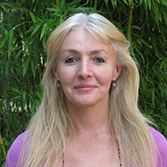 |
Pam’s role primarily relates to communication and engagement activities associated with the Applied Aquatic Ecology section, focussing on sharing information about our projects, expertise and achievements, as well as enhancing stakeholder relationships. She produces the Applied Aquatic Ecology Quarterly
Updates, contributes to website and media content and a suite of other resources. Pam also works on a range of large and small projects, including those that involve citizen science. Selected projects: Victorian Environmental Flows Monitoring and Assessment Program (VEFMAP) Wetland Monitoring and Assessment Program for water for the environment (WetMAP) Fishers fishing for fish ear bones Selected publications pam.clunie@deeca.vic.gov.au |
Dr Jemma Cripps |
Jemma’s research is focused on terrestrial fauna, particularly arboreal gliders and possums in relation to timber harvesting. She provides scientific input and advice on a range of topics to support decision-making processes. She has experience using several survey techniques for monitoring threatened
species, including camera trapping, spotlighting, owl call-playback, animal capture and radio-tracking. Jemma’s background includes disease ecology research in large herbivores, primarily kangaroos and introduced deer. Selected projects: Leadbeater’s Possum – camera surveys in trees Regional Forest Agreements (Landscape Scale Surveys) Deer-livestock interaction and disease Selected publications jemma.cripps@deeca.vic.gov.au |
Diane Crowther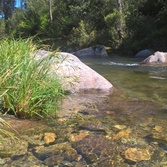 |
Di specialises in river health and macroinvertebrate ecology, with a particular focus on threatened species, and citizen science. Di’s work involves collaboration with government, universities, and the community. Di is a member of the Australian Freshwater Sciences Society and the Australian Entomological
Society. Selected projects: Dandenong Burrowing Crayfish in Cool Temperate Rainforest New survey methods and fire effects on rare crayfish in Gippsland Selected publications |
| Rob Dabal
|
Rob is a plant ecologist whose main area of interest is the way in which vegetation responds to disturbance at a landscape scale and how its function is influenced, particularly the ongoing impacts of climate change and ecological function. Rob provides vegetation advice and botanic expertise in riparian,
wetland, forest and grassy ecosystems. Rob has extensive experience in managing large scale monitoring and assessment surveys. Selected projects: Melbourne Strategic Assessment - ARI Monitoring deer distribution, abundance and impacts across Victoria Regional Forestry Agreements - ARI Rob.Dabal@deeca.vic.gov.au |
David Dawson 
|
David’s main areas of research include the response of native fish to environmental flows as well as fish passage and movement. David’s work has focused on Australian Grayling and Golden Perch. Survey techniques commonly used include electrofishing, netting surveys, egg/larval surveys, acoustic telemetry,
radio telemetry and water quality monitoring. Selected projects: Fish spawning and recruitment Index of estuary condition Fishways and fish movement Selected publications dave.dawson@deeca.vic.gov.au |
Louise Durkin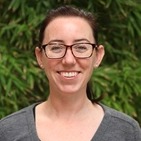 |
Louise’s research focuses on threatened terrestrial fauna, particularly Leadbeater’s Possums and Greater Gliders in relation to timber harvesting and forest ecology. She also designs and implements monitoring of amphibian and freshwater turtle communities to assess the impact of environmental watering.
Louise is experienced with a range of survey techniques, including camera trapping, spotlighting, thermal imaging and call-playback surveys, pitfall trapping, animal capture and radio-tracking. Louise has a field ecology background in the international conservation non-government organisation sector. Selected projects: Wildlife call recognition using artificial intelligence Leadbeater's Possum - camera surveys in trees Regional Forest Agreements (Landscape Scale Surveys) Selected publications louise.durkin@deeca.vic.gov.au |
Dr Brad Farmilo |
Brad’s primary research interest is on the role of disturbance (grazing, fire, drought) on endangered grassy ecosystems of south-eastern Australia. In addition, Brad works on a range of vegetation monitoring programs to determine the effectiveness of management actions to improve conservation outcomes.
Brad’s skills range from method development, data analysis, scientific publication and communication. Selected projects: Weed control in threatened native grasslands Monitoring native grassland for conservation Using monitoring to improve native vegetation management Selected publications brad.farmilo@deeca.vic.gov.au |
Dr Ben Fanson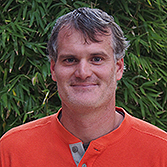 |
Ben is one of ARI’s biometricians and provides scientific and statistical support across the institute. This support ranges from developing experimental designs, statistical consultation, conducting multi-day statistical workshops (e.g. data wrangling in R, GLMMs in R) and performing the analyses for
projects. Due to the rich diversity of projects and experimental designs implemented at ARI, Ben uses a diverse array of statistical methods, such as joint species modelling using state-space models, hierarchical mixed models, and Bayesian methods. Selected projects: Preparing for carp herpesvirus Fishways and fish movement Salinity tolerance of Murray Hardyhead Selected publications ben.fanson@deeca.vic.gov.au |
Tim Fernando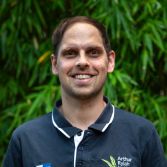 |
Tim is a scientist in the Aquatic Biodiversity & Conservation Program with a focus on applied research and management of threatened fish, mussels and crayfish. Tim joined ARI in 2022 having previously worked in Alice Springs as a park ranger and as a scientist. During this time he lead fish surveys
in the Finke river, engaging with First Nation people and Traditional Owners across Central Australia waterholes. Tim also brings a suite of media skills including videography which is used to communicate and promote his program’s projects to a wide-ranging audience. Selected projects: Removing trout for Barred Galaxias conservation Understanding and protecting our threatened galaxiids tim.fernando@deeca.vic.gov.au |
Lachlan Francis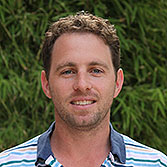 |
Lachlan’s area of research is in population modelling and spatial data analysis. Lachlan also has experience with expert elicitation techniques, prioritisation methodologies, and a range of field survey techniques, as well as a background in civil design and construction industries. Lachlan was part
of the successful Macquarie Island pest eradication project, and has an interest in applied island conservation, particularly management of introduced vertebrate fauna on islands. Selected projects: Wildlife call recognition using artificial intelligence Best-practice guidelines for fox management Artificial intelligence identifies frogs – by their calls lachlan.francis@deeca.vic.gov.au |
Dr Peter Griffioen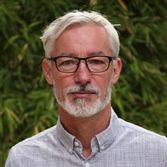 |
Peter provides computer programming skills, ecological spatial data analysis and satellite image processing. Peter also curates large in-house ecological datasets which include extensive flora and fauna records. He develops custom satellite image and map grid processing software in conjunction with
Machine Learning and Deep Learning models to provide maps of species habitat distributions, land cover and land use maps. Selected projects: Wildlife call recognition using artificial intelligence Regional Forest Agreements Artificial intelligence identifies frogs – by their calls peter.griffioen@deeca.vic.gov.au |
Graeme Hackett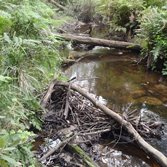 |
Graeme is a senior technician with extensive experience in fish sampling techniques including electrofishing, netting, tagging and telemetry, water quality and flow sampling methods. He is also involved in database management and fish earbone collection, preparation and interpretation. Graeme works
across a wide range of large and small-scale fish monitoring and research projects. Selected projects: Electrofishing technology Murray River resnagging |
Annique Harris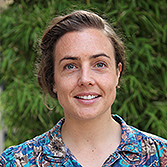 |
Annique provides technical support using fish survey techniques to assess the influence of environmental watering on native fish life history processes. Annique is experienced in otolith (fish ear bone) analysis techniques such as ageing and microchemistry, which provide valuable data relating to fish
population structure. Selected projects: Victorian Environmental Flows Monitoring and Assessment Program (VEFMAP) Selected publications annique.harris@deeca.vic.gov.au |
Dr Angie Haslem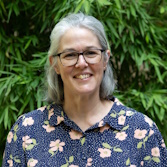 |
Angie works on disturbances like fire and habitat loss, and their impact on biodiversity at landscape scales. She currently contributes to fire ecology projects that quantify the impact of fire on native species and assists the use of this knowledge in biodiversity management. Angie is experienced
at designing large-scale monitoring programs to evaluate the ecological outcomes of management actions. Selected publications angie.haslem@deeca.vic.gov.au |
Dr Cindy Hauser
|
Cindy develops quantitative analyses to support environmental management and decision-making, from threatened species conservation to invasive species control and sustainable natural resource management. She is particularly interested in finding better ways to design, conduct and analyse surveys. Her
work is informed by decision science and draws broadly from mathematics, statistics and programming. Selected projects: Fire Analysis Model for Ecological values (FAME) Melbourne Strategic Assessment Program Mapping habitat condition across Victoria Selected publications cindy.hauser@deeca.vic.gov.au |
Dr Sally Hladyz |
Sally Hladyz is a community and ecosystem freshwater ecologist. Her research focus is on linking biodiversity, ecosystem function and food webs in an applied context to help improve the management of freshwater ecosystems. Sally has expertise in determining environmental flow benefits for river and
wetland health, bioassessment of rivers using macroinvertebrates and ecosystem functioning assays and water quality issues in managed river channels in the Murray-Darling Basin. Selected projects: Flow-MER: Monitoring Evaluation and Research Program Selected publications sally.hladyz@deeca.vic.gov.au |
Liam Hogan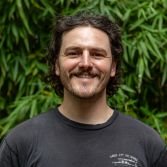 |
Liam provides technical support for a range of aquatic research projects and assists in the maintenance and repair of ARI gear and equipment. Liam previously worked as a restoration ecologist and crew manager in the private sector for a number of years, before completing post graduate study in fish
management and conservation. Liam works across a wide range of fish monitoring and research projects. Selected projects: Victorian Environmental Flows Monitoring and Assessment Program (VEFMAP) Native Fish Report Cards liam.hogan@deeca.vic.gov.au |
Katie Howard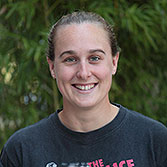 |
Katie works mainly on herpetofauna with both aquatic and terrestrial life history stages, particularly turtles and frogs. Katie has experience with a range of survey techniques including trapping, call-playback, remote monitoring (including cameras and audio devices) and VHF, acoustic and GPS tracking.
She provides scientific input and advice regarding Victorian freshwater turtle ecology and management to inform a range of state and local government decision-making processes. Selected projects: Wildlife call recognition using artificial intelligence Tracking turtles to determine impacts of water for the environment Cultural conservation of freshwater turtles Selected publications katie.howard@deeca.vic.gov.au |
Ben Iscaro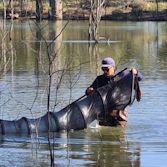 |
Ben provides technical support across numerous aquatic research projects as an Aquatic Technical Officer. The majority of Ben's fieldwork has been based around fish movement and has involved numerous survey techniques including acoustic telemetry, fishway trapping and electrofishing surveys. When not
in the field Ben assists with the maintenance and repair of ARI equipment and electrofishing vessels. Upon completing his Bachelors in Zoology and Conservation Ecology Ben worked as an Aquarist at Sea Life Melbourne, and since joining ARI has contributed to the successful spawning of the Glenelg Freshwater
Mussel in captivity. Selected Projects: Fishways and fish movement Native Fish Report Cards Victorian Environmental Flows Monitoring and Assessment Program (VEFMAP) ben.iscaro@deeca.vic.gov.au |
Lauren Johnson (nee Dodd)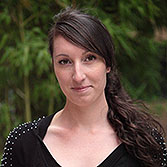 |
Lauren’s main areas of research involve threatened fish species, particularly Australian Grayling and Barred Galaxias. Her work has involved a variety of monitoring programs using numerous survey techniques including backpack/bank-mounted/boat electrofishing, fyke/dip/mesh/bait-trap/seine netting,
radio tracking, tagging, and genetics. Lauren also provides program support to the Applied Aquatic Ecology group. Selected projects: Victorian Environmental Flows Monitoring and Assessment Program (VEFMAP) Salinity tolerance of Murray Hardyhead Barred Galaxias conservation Selected publications lauren.johnson@deeca.vic.gov.au |
Dr Chris Jones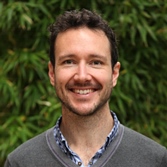
|
Chris is a quantitative vegetation ecologist with 10 years' experience in freshwater ecosystems throughout Victoria. He completed his PhD at the University of Melbourne on riparian vegetation monitoring. Chris’s work and research has focused on a range of vegetation types, including coastal, heathland,
mallee, woodland, forest and alpine systems. Chris has extensive experience in the design, implementation, analysis and communication of monitoring programs – particularly in riparian systems. Selected projects: Victorian Environmental Flows Monitoring and Assessment Program (VEFMAP) Selected publications chris.jones@deeca.vic.gov.au |
Dr Matthew Jones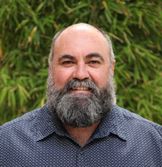 |
Matthew is a freshwater fish ecologist with 20 years' experience working in freshwater ecosystems throughout Victoria, New South Wales and South Australia. Matthew’s work focuses on fish movement, fishways and instream barriers including concept design and review, environmental flows, common carp management,
Passive Integrates Transponder (PIT) Systems, and 'fish friendly' stream gauging stations. Selected projects: Fish friendly stream gauging station program Fishways and fish movement Victorian Environmental Flows Monitoring and Assessment Program (VEFMAP) Selected publications matthew.jones@deeca.vic.gov.au |
Dean Karopoulos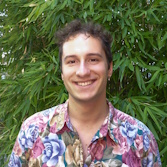 |
Dean is a plant ecologist specialising in riparian and wetland ecosystems. He has experience in vegetation assessments and monitoring throughout Victoria. Dean has a particular interest in monitoring the effectiveness of management actions such as environmental flows, weed control, revegetation and
biomass control. He hopes his research will help land managers identify the best tools to protect, enhance and expand native ecosystems. Selected projects: Water for the environment in Rivers Ecological monitoring within the Victorian Murray Floodplain Restoration Project Riparian Intervention Monitoring Program dean.karopoulos@deeca.vic.gov.au |
Dr Sally Kenny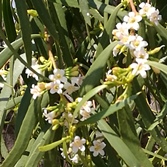 |
Sally’s principal research focus is the influence of disturbance regimes (grazing, flooding, fire) on mallee ecosystems including semi-arid woodlands, eucalypt shrublands and floodplains. Information gathered from these projects allows management agencies to enhance their current biodiversity conservation
actions. Sally’s expertise ranges from ecological experimental design and vegetation survey techniques, data management and analysis, GIS modelling and scientific publication Selected projects: Health of semi-arid non-eucalypt woodlands Vegetation response to environmental watering at Hattah Lakes Assessing stock management practices on remnant vegetation in the Mallee Selected publications |
Adrian Kitchingman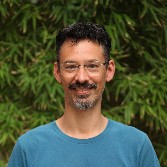 |
Adrian is primarily focused on research into the effects of habitat and flows on fish life histories. He also uses skills in spatial database systems and GIS analysis/development to contribute to a variety of other ARI research projects and DEECA sections. His work has ranged from the modelling of
Victoria’s instream woody habitat and effects of flow regimes on Silver Perch populations to developing database systems to better manage ARI’s aquatic field data. Selected projects: Victorian instream habitat assessment Index of Estuary Condition Murray River resnagging Selected publications adrian.kitchingman@deeca.vic.gov.au |
Dr Nyil Khwaja |
Nyil is an ornithologist with broad interests in behaviour, ecology, evolution and conservation. He has led research on forest passerines in New Zealand and migratory shorebirds in tropical Australia, and contributed to Red List assessments for globally threatened species. He is a Fellow of the Higher
Education Academy for university teaching. Nyil’s research at ARI examines how wetland and woodland birds respond to environmental watering. Selected projects: Ecological monitoring within the Victorian Murray Floodplain Restoration Project Assessing wetland response to water for the environment Selected publications nyil.khwaja@deeca.vic.gov.au |
Dr Wayne Koster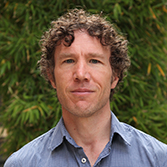 |
Wayne leads research projects on native fish ecology and conservation across Victoria and more broadly in south-eastern Australia. Wayne has an extensive knowledge of the ecology and habitat requirements of freshwater fish species. The focus of much of Wayne’s recent work relates to movement and spawning
ecology and conservation implications for riverine fishes, particularly the development of environmental flow recommendations aimed at restoring suitable flow regimes for fish in regulated rivers. Selected projects: Tracking Australian eel migration using satellites Responses of Australian Grayling to environmental water allocation Influence of streamflow on spawning-related movements of Golden Perch Selected publications research.ari@deeca.vic.gov.au |
Harriet Kulich |
Harriet is an ecologist with a focus on birds and vegetation. She is interested in better understanding human impacts in the environment, with her postgraduate research investigating how artificial light at night impacts bird behaviour and cognition. Harriet has also worked in biosecurity, managing
invasive species throughout Victoria. Harriet’s current research seeks to inform management decisions by investigating how birds and vegetation respond to environmental water flows in rivers and wetlands. Selected projects: Wildlife call recognition using artificial intelligence Ecological monitoring within the Victorian Murray Floodplain Restoration Project Assessing wetland response to water for the environment harriet.j.kulich@deeca.vic.gov.au |
Dr Kate Lee |
Kate coordinates the Victorians Value Nature (VVN) program, and with the VVN team, works closely with partners to support all Victorians in connecting with and acting for nature. Drawing together behaviour science and environmental science, the VVN program builds conservation actions that help protect
biodiversity and ensure our environment is healthy. Kate is an interdisciplinary researcher looking at nature connection, urban environments, health and wellbeing, program design and evaluation, and ways of working together for change. Selected projects: Victorians Value Nature How Victorians can act for nature |
Dr Rachel Leihy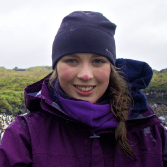
|
Rachel is a community ecologist, with an interest in understanding spatial and temporal biodiversity patterns to support conservation and management decisions. Her PhD and post-doctoral research at Monash University investigated the effect of human activities on the wilderness and biodiversity value
of Antarctic and sub-Antarctic ecosystems. Selected projects: Spatial models for wetland management Strategic management prospects Selected publications rachel.leihy@deeca.vic.gov.au |
Dr Pia Lentini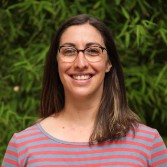 |
Pia's research currently focuses on terrestrial fauna conservation and management, particularly marsupials, bats and birds in forest and woodland ecosystems. Her work is a mix of field ecology, quantitative ecology, spatial science and planning, and she enjoys projects that draw in people from across
disciplines such as decision science and environmental psychology. Pia is also a member of DEECA's Scientific Advisory Committee. Selected projects: Leadbeater's Possum - camera surveys in trees Regional Forest Agreements Selected publications pia.lentini@deeca.vic.gov.au |
Jason Lieschke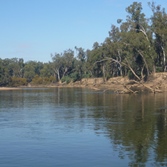 |
Jason has extensive experience working across Victoria, and more broadly in south-eastern Australia. His research mainly focuses on threatened species, particularly their distributions and habitats. Jason works closely with the Victorian Fisheries Authority (VFA), including providing input into management
of wild trout fisheries. He is also the coordinator of aquatic ecology operations and head of the electrofishing committee at ARI. Selected projects: Electrofishing technology Native Fish Report Card Program Index of Estuary Condition Selected publications jason.lieschke@deeca.vic.gov.au |
Dr Canran Liu
|
Canran is a quantitative ecologist and has studied mathematics, statistical ecology and plant ecology. He has expertise in statistical analysis, spatial analysis, diversity measurement and ecological modelling, especially species distribution modelling. He has had many international roles, including
at Henan Agricultural University (China), Chinese Academy of Sciences, Princeton University, University of Toronto, University of Oxford, and University of New England. Selected projects: Habitat distribution models (HDMs) Regional Forest Agreements Selected publications canran.liu@deeca.vic.gov.au |
Dr Lindy Lumsden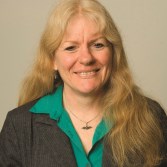 |
Lindy is also internationally recognised as an expert on the ecology and conservation of insectivorous bats and leads projects to improve understanding of threatened species to inform conservation management. She also undertakes research on threatened arboreal mammals, especially Leadbeaters's Possums,
and provides scientific input and advice to a wide range of state and national planning and decision-making processes. Selected projects: Discovering the secrets of Victoria's small bats Artificial hollows for Leadbeater's Possum Extensive new knowledge on threatened species Selected publications |
Phoebe Macak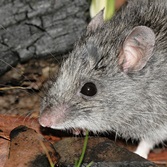 |
Phoebe's main areas of research involve terrestrial fauna, particularly arboreal possums and gliders in relation to timber harvesting. Her work has focused on a range of threatened species, such as the Smoky Mouse and Leadbeater's Possum, the impact of salvage harvesting on diurnal birds, ibis feeding
ecology, and uses a variety of survey techniques including small mammal trapping, owl call-back, microbat call recording and processing, spotlighting and radio-tracking. Selected projects: Use of nest boxes in Victoria Smoky Mouse movement across a strategic fuel break Leadbeater's Possum - camera surveys in trees Selected publications phoebe.macak@deeca.vic.gov.au |
Dr Josephine MacHunter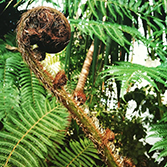 |
Josephine leads the Fire Ecology program which develops and applies decision analysis, and risk assessment tools, to improve consideration of biodiversity in land management decisions. Her work includes developing ecological models of species’ responses to fire, plant and animal functional traits,
elicitation and application of expert judgement, and methods for addressing uncertainty in decision making. Research from her PhD focused on the long-term effects of forest fragmentation on birds in Victoria. Selected projects: Fire Analysis Module for Ecological values (FAME) Fire regimes, carbon levels and biodiversity Selected publications josephine.machunter@deeca.vic.gov.au |
Dr Tessa Mazor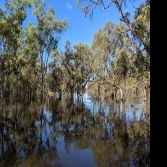
|
Tessa is a spatial ecologist with research interests in developing sustainable solutions for biodiversity conservation alongside socioeconomic goals. She has worked across the science-policy interface to address a variety of environmental challenges including sustainable fisheries management, nature-based
solutions, renewable energy planning and optimising protected area design. Through her research, Tess has developed a range of marine and coastal spatial products that support evidence-based decision-making and enhance biodiversity management across Victoria. Selected projects: Science for renewable energy policy Marine Biodiversity Values Marine Biodiversity Index Selected publications tessa.mazor@deeca.vic.gov.au |
Tess McLaren |
Tess provides communications and media support for our researchers, helping connect people with our science stories. Combining her environmental science and design training with technology, Tess applies her expertise in visual communication, design, zoology, photography, GIS, and various technologies,
to share ARI’s science. Tess also supports our biodiversity forums and events and Traditional Owner engagement. Selected projects: Victorians Value Nature tess.mclaren@deeca.vic.gov.au |
Bryan Mole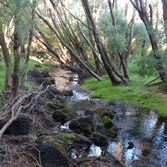
|
Bryan’s current area of research includes riparian and wetland ecosystems with a particular emphasis on vegetation monitoring. Bryan has over 20 years’ experience in vegetation surveys across a broad range of ecosystems in south eastern Australia. He has an interest in plant taxonomy and Australian
flora. Selected projects: Riparian Intervention Monitoring Program (RIMP) Wetland Intervention Monitoring Program (WIMP) Victorian Environmental Flows Monitoring and Assessment Program (VEFMAP) research.ari@deeca.vic.gov.au |
Dr Paul Moloney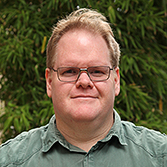 |
Paul is part of ARI’s Biometrics team which helps staff with experimental design and data analysis. His work has ranged from designing and analysing state-wide kangaroo surveys to fish movement analyses to estimating annual harvests of game species to helping design monitoring protocols for Koala’s
in Blue Gum plantations. He is experienced and knowledgeable in both Frequentist and Bayesian statistics. Paul is also involved with training staff in statistical computer programs and analyses. Selected projects: Analysis of post-construction fauna mortality monitoring at windfarms State-wide abundance of kangaroos in Victoria The effects of long-term fox control in the Glenelg Ark Selected publications |
Dr Joslin Moore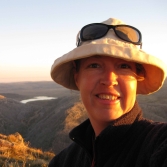 |
Joslin is a quantitative ecologist with more than 15 years of experience undertaking ecology, conservation and decision science research in Europe, UK and Australia. Joslin uses a combination of field based experiments, observation, modelling and structured decision making to develop methods and applications
that can be directly implemented by managers. Her research has addressed grassland response to eutrophication, restoration and management of native grasslands, management of invasive willows in eastern Victoria, decision frameworks for management of invasive species, optimal surveillance for marine pests,
as well as developing and testing optimal surveillance methods for invasive plants. She has a particular interest in the conservation and management of alpine peatlands and native grasslands. Selected publications joslin.moore@deeca.vic.gov.au |
Dr Kay Morris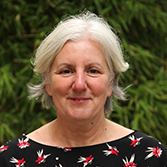 |
Kay’s research examines responses of aquatic plants to threats including nutrient enrichment, salinisation and altered water regimes. She has also studied how aquatic habitats are linked across the landscape through the dispersal of plants and animals. More recent research aims to understand the effectiveness
of management actions, such as controlled grazing, revegetation, weed control and environmental flows, in improving vegetation condition. This also involves using models of biological connectivity to inform management decisions. Selected projects: Wetland Intervention Monitoring Program (WIMP) Riparian Intervention Monitoring Program (RIMP) Wetland Connectivity Selected publications kaylene.morris@deeca.vic.gov.au |
Claire Moxham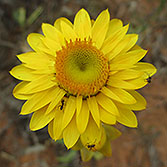 |
Claire leads the Vegetation Ecology and Threatened Flora program at ARI through a series of landscape scale, partnership research projects and monitoring programs that foster strategic ecological solutions leading to enhanced biodiversity, management and policy outcomes. Claire and her team's research
is focused on various aspects of applied vegetation ecology (and threatened species ecology) to enable improved management practices to enhance biodiversity conservation. Claire has a personal interest in Mallee, floodplains, grassland and grassy woodland ecosystems. Selected projects: Restoring Black Box Woodlands Vegetation response to environmental watering at Hattah Lakes Assessing stock management practices on remnant vegetation in the Mallee Selected publications claire.moxham@deeca.vic.gov.au |
Annette Muir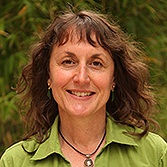 |
Annette is a plant ecologist whose main research area is the responses of native plants to fire. Her work involves collaboration with land managers to ensure the relevance of this research to management applications, and communications to different audiences. She has extensive experience in plant surveys
and monitoring in a range of ecosystems across Victoria, including East Gippsland, Central Highlands and Box-Ironbark regions. Selected projects: Fire regimes for banksias Fire ecology retrospective study: looking back to learn for the future Selected publications annette.muir@deeca.vic.gov.au |
Mike Nicol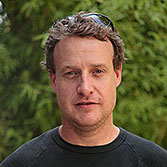 |
Mike has more than 20 years’ experience in ecology, more recently focusing on applied research and management of threatened fish, crayfish and mussels, and improved biodiversity knowledge in aquatic environments. He also has experience in aquatic drought refuges, measuring freshwater ecosystem health
using aquatic invertebrates, database systems and GIS. Selected projects: Regional Forest Agreements (Landscape Scale Surveys) Removing trout for Barred Galaxias conservation Lower Snowy River monitoring and assessment Selected publications michael.nicol@deeca.vic.gov.au |
| Dr Magdalena Nystrand
|
Magdalena is an ecologist, with more than 15 years’ experience working across a broad range of disciplines and species, including behavioural and evolutionary ecology, immuno-ecology, population biology, and conservation. Her research has broadly focused on how environmental and intrinsic factors influence
life-history traits in different systems, within and across generations. Magdalena is also experienced in project management and experimental design. Her current focus is on coordinating the Victorian Environmental Flows Monitoring and Assessment Program (VEFMAP) and the Wetland Monitoring and Assessment
Program (WETMAP), and leading the development of a state-wide monitoring program for wetland birds and vegetation, as part of WetMAP. Selected projects: Wetland Monitoring and Assessment Program for water for the environment (WetMAP) Victorian Environmental Flows Monitoring and Assessment Program (VEFMAP) magdalena.nystrand@deeca.vic.gov.au |
Justin O'Connor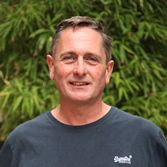 |
Justin leads the Aquatic Connectivity program, and is interested in a holistic approach to riverine management. His research areas include connectivity, environmental flows, productivity and habitat restoration (all intrinsically linked) and the influence of each of these on the successful restoration
of riverine fish populations. Selected projects: Fishways and fish movement Victorian Environmental Flows Monitoring and Assessment Program (VEFMAP) Index of Estuary Condition Selected publications justin.oconnor@deeca.vic.gov.au |
Dr Carlo Pacioni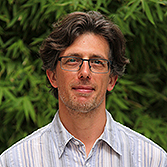 |
Carlo’s research focuses on applications of population genetic and modelling for wildlife and vertebrate pest management. He has worked with a variety of species, including the Woylie, Yellow-footed Antechinus, Ghost Bat, wild dogs and several deer species. Carlo has a background in veterinary science,
which has led to his involvement in wildlife disease investigations. He has a strong interest in the use of molecular data for demographic, phylogeographic and epidemiological inference Selected projects: Genetic management of threatened species breeding programs and translocations Deer-livestock interaction and disease Rabbit biological control Selected publications carlo.pacioni@deeca.vic.gov.au |
Andrew Pickworth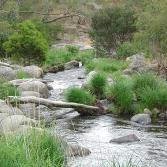 |
Andrew is a senior technician with over 25 years of experience across a broad range of fish sampling and management projects, including the design and construction our fishway assessment traps. Andrew splits his time between field project work and managing the operations of the ARI workshop. He is
responsible for the service, maintenance and upkeep of our fleet of vessels including seven electrofishing vessels and our bank-mounted electrofishing unit as well as assisting with building and fleet management. Selected projects: Electrofishing technology Murray River resnagging |
Dan Purdey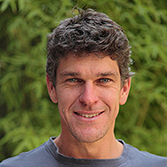 |
Dan’s work includes applying fauna survey techniques for investigating the effect on waterbirds of environmental water delivered to wetlands, determining the presence of threatened fauna such as Long-footed Potoroos and Leadbeater’s Possums, and monitoring invasive species such as foxes and cats. Invasive
species work has included island cat eradication in Tasmania, and developing a predator proof fence. Dan also heads the DEECA Animal Ethics Committee and has developed videos for ARI projects. Selected projects: Wetland Monitoring and Assessment Program for water for the environment (WetMAP) Camera trapping as a survey tool Waterbird surveys in a large, tidal bay Selected publications daniel.purdey@deeca.vic.gov.au |
Dr Tarmo Raadik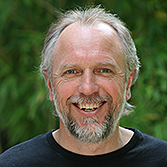 |
Tarmo leads the Aquatic Biodiversity & Conservation Program, focusing on applied research and management of threatened fish, crayfish and mussels, and improved biodiversity knowledge in aquatic environments. Tarmo is known nationally for his taxonomic expertise with fish and crayfish (14 new species)
and is relied upon for his knowledge of species distributions, biology and threats. He also has a focus on aquatic drought refuges and provides scientific advice and input to a broad range of state and national aquatic issues. Selected projects: Bushfire response 2020: aquatic rescues Conservation recovery of threatened galaxiid species in Gippsland Regional Forest Agreements (Landscape Scale Surveys) Selected publications tarmo.raadik@deeca.vic.gov.au |
Dr Dave Ramsey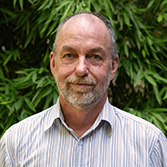 |
Dave leads the Wildlife Management program, which conducts research into the management of native and introduced fauna, especially kangaroos, koalas, deer, rabbits, wild dogs and foxes. Dave has extensive expertise in applied statistics and quantitative methods used for ecological data analysis and
modelling, including in New Zealand and the USA. He frequently provides advice and analysis for a wide range of wildlife biosecurity issues including the management, eradication and surveillance of invasive species incursions and wildlife disease. Selected projects: Rabbit biological control Koala translocation Deer-livestock interaction and disease Selected publications david.ramsey@deeca.vic.gov.au |
Dr Scott Raymond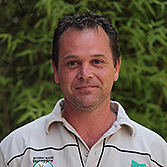 |
Scott has an interest in river and wetland restoration, population modelling and the conservation of threatened fishes. His research has focused on threatened species translocations, environmental impacts on larvae, fish distribution and movement patterns, alien species interactions with native fish
communities and population dynamics of Murray Crayfish. Scott also manages the student and volunteer program at ARI. Selected projects: Victorian Demonstration Reach Program Fish spawning and recruitment - Barmah-Millewa Forest Murray River resnagging Selected publications scott.raymond@deeca.vic.gov.au |
Dr Alan Robley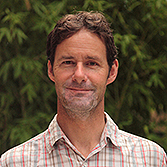 |
Alan leads the Predator Management Program, which provides high-quality research and advice to support the management of non-native invasive predators and their impact on native wildlife populations and agricultural enterprises. Alan’s research is currently focused on assessing approaches that improve
the monitoring and management of feral cats and feral pigs. This includes approaches to monitoring the effectiveness of different tools for the control of feral cats and the population structure of feral pigs in South-east Australia. Selected projects: Determining the population structure of feral pigs Assessing the effectiveness of cage trapping to manage feral cats Selected publications alan.robley@deeca.vic.gov.au |
Dr Danny Rogers |
Danny has extensive experience in shorebirds and wetlands birds. Major research includes studying the response of birds to water for the environment in selected inland Victorian wetlands and habitat selection by shorebirds and the implications for conservation and wetland management. He also monitors
shorebirds and wildfowl at Melbourne’s largest sewage treatment facility. Danny has a long-standing involvement in monitoring waterbirds through the teamwork of volunteers and professionals. Other interests include waterbird movements, moults and foraging ecology, moults and field identification. Selected projects: Wetland Monitoring and Assessment Program for water for the environment (WetMAP) Aging and sexing game birds using feathers Waterbird surveys in a large, tidal bay Selected publications danny.rogers@deeca.vic.gov.au |
Raras Santosa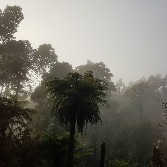 | Raras contributes to business support, project management and project delivery in the Community Ecology Section. She has administration and project support experience in the Office of Executive Director of Biosecurity Victoria. Raras has a background in zoology and environmental science and volunteered in research with The University of Melbourne and Museums Victoria. |
Thomas Schneider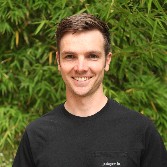 |
Tom provides technical support to variety of wildlife research projects at ARI. Tom joined DEECA in 2021, after 8 years working in Environmental Science in the University sector and previously as a Conservation Parks Officer. Tom brings with him comprehensive knowledge of a wide range of wildlife survey
techniques, and an understanding of innovative technology, multimedia and Geographic Information Systems. Selected projects: Tracking turtles to determine impacts for water for the environment Bushfire response 2020 - impacts on gliders and owls Spotted-tail quoll surveys Monitoring effectiveness of aerial baiting for feral cats Selected publications thomas.schneider@deeca.vic.gov.au |
Dr Michael Scroggie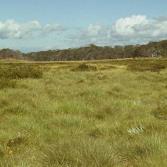 |
Michael is a quantitative ecologist with an interest in the application of statistical methods in wildlife conservation and management. His research includes studies of populations of threatened fauna and pest animals. He has a special interest in the ecology and conservation of frogs. Michael is a
member of the Australian Society of Herpetologists. Selected projects: State-wide abundance of kangaroos in Victoria Role of disturbance in the conservation of Striped Legless Lizard Greater Glider distance sampling Selected publications michael.scroggie@deeca.vic.gov.au |
Dr Steve Sinclair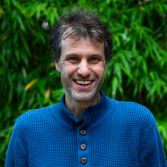 |
Steve is a vegetation ecologist, specialising in grassy systems and wetlands. His work is diverse, including botanical field surveys, vegetation mapping, management advice, conservation genetics, monitoring and reporting, ecosystem modelling, and the explicit consideration of stakeholder values and
knowledge in management decisions. Selected projects: Melbourne Strategic Assessment Program Index of Estuarine Condition – assessment of fringing vegetation Stakeholder-driven rangeland condition metrics in arid Mongolia Selected publications steve.sinclair@deeca.vic.gov.au |
Dr Will Sowersby |
Will is a fish ecologist with a research background in behavioural ecology, experimental design and evolutionary biology. Will has also conducted surveys for flora and fauna in both aquatic and terrestrial environments and has experience in natural resource management and biodiversity policy. Selected projects: Victorian Environmental Flows Monitoring and Assessment Program (VEFMAP) Fishways and fish movement Biodiversity Indicator Framework (BIF) Selected publications will.sowersby@deeca.vic.gov.au |
Dr Kasey Stamation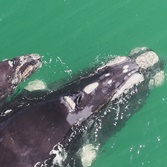 |
Kasey‘s main area of research involves marine mammals (particularly large whales) and waterbirds with a focus on research that informs management actions for species recovery and persistence. Kasey works on a range of projects including population dynamics of southern right whales, monitoring of waterbirds
at the Western Treatment Plant and monitoring the impacts of environmental water on waterbirds at wetlands across Victoria. Kasey is experienced in managing large datasets and designing relational databases, curating many of ARI’s project databases. Selected projects: Southern Right Whale identification using photos Wetland Monitoring and Assessment Program for water for the environment (WetMAP) Waterbirds at the Western Treatment Plant Selected publications kasey.stamation@deeca.vic.gov.au |
Dr Simone Stevenson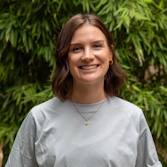 |
Simone’s research has focused on evaluating and developing quantitative tools for decision making, both marine and terrestrial. She has adapted and developed techniques to evaluate the role of data, indicators, scenarios and models in making conservation decisions. Most recently, Simone developed marPEST
(Marine Pest Epidemiological Simulation Tool) for the New Zealand government, which simulates the spread of marine invasive species around New Zealand on ships under different management scenarios. Simone has experience in statistical and process-based modelling, network analysis and data visualisation. Selected projects: Science for renewable energy policy Selected publications simone.stevenson@deeca.vic.gov.au |
Fiona Sutton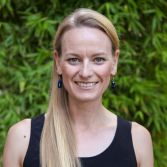 |
Fiona is a plant ecologist with a knowledge of the flora and fauna of south-eastern Australia, specialising in floodplain, coastal saltmarsh, forest and grassy ecosystems. She has an interest in ecological management and restoration, particularly associated with invasive species and changes to hydrology,
as well as habitat monitoring to track responding changes over time. Selected publications fiona.sutton@deeca.vic.gov.au |
Dr Jim Thomson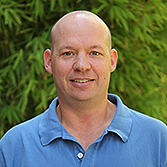 |
Jim is a quantitative ecologist with expertise in conservation planning, spatial modelling and statistical analysis. He has worked on terrestrial, freshwater, and estuarine ecosystems in Australia and internationally, with a focus on integrating and synthesizing data to understand anthropogenic
impacts and improve ecological management. He has developed a range of spatial products and decision support tools to inform strategic biodiversity management in Victoria, and frequently provides scientific inputs to a range of state planning and decision-making processes. Selected projects: Strategic Management Prospects Survey prioritisation tool for Forest Protection Survey Regional Forest Agreements Selected publications jim.thomson@deeca.vic.gov.au |
Dr Charles Todd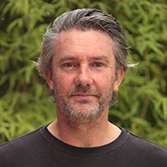 |
Charles provides expertise across ARI on developing population models to address key management and research questions affecting a variety of terrestrial and aquatic biota. His work has covered a range issues from threatened species to invasive species, from developing population models for localised
small endemic species to population models addressing management questions at the scale of the Murray-Darling Basin. Charles works closely with a variety of agencies including local, interstate and international organisations. Selected projects: Population viability analysis model for Queensland Lungfish Using models to help manage the impacts of carp Population models to inform fish and waterway management Selected publications charles.todd@deeca.vic.gov.au |
Dr Zeb Tonkin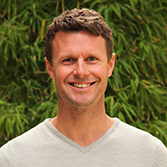 |
Zeb manages the Instream Habitat and Environmental Flows program. Zeb has extensive experience in recruitment dynamics of freshwater fish, environmental flows, fish migratory behaviour, floodplain assemblages, threatened and pest species and habitat restoration. His broad skill base includes collection
and identification of adult and larval fish, external and internal tagging (including radio and acoustic telemetry), otolith preparation and interpretation and data analysis. He manages numerous small and large projects involving a range of stakeholders. Selected projects: Victorian Environmental Flows Monitoring and Assessment Program (VEFMAP) Victorian instream habitat assessment Recovering Macquarie Perch Selected publications zeb.tonkin@deeca.vic.gov.au |
Dr Emmi van Harten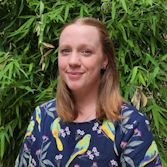
|
Emmi is an ecologist and enjoys working at the intersection of science and conservation/management. Her areas of expertise include insectivorous bats, marking small animals for long-term monitoring using passive integrated transponder (PIT) tags, and biodiversity matters associated with the development
and operation of renewable energy facilities. Emmi's role at ARI includes both research and technical advice on impacts to birds and bats at onshore wind farms and mitigations to avoid and minimise these impacts.
Selected projects: Renewable energy assessment |
Dr Inka Veltheim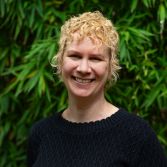 |
Inka is an ornithologist specialising in waterbirds and shorebirds, with expertise in Brolga ecology. Her main area of interest is animal movements and habitat use, using spatial analyses to inform conservation management and planning. She has broad experience in designing and undertaking fauna surveys,
capture, tagging, monitoring, impact assessment studies and using biotelemetry to study birds. Inka's research at ARI focuses on threat management of potential wind energy impacts on birds and wetland management for waterbirds, including Brolga and other threatened species. Selected projects: Renewable energy assessment inka.veltheim@deeca.vic.gov.au |
Dr Lyndsey Vivian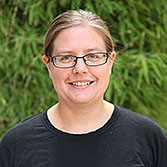 |
Lyndsey’s main area of research is the ecology of wetland and riparian ecosystems. Her work focuses on the impacts of altered disturbance regimes on wetland and riparian plants, and the use of environmental flows and other intervention strategies for ecosystem restoration. Lyndsey’s research involves
both field-based surveys and experimental approaches. Selected projects: Victorian Environmental Flows Monitoring and Assessment Program (VEFMAP) Wetland Intervention Monitoring Program (WIMP) Selected publications lyndsey.vivian@deeca.vic.gov.au |
Dr Kirby Warren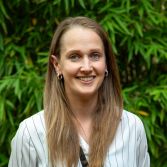 |
Kirby contributes to project management and buisness support to all parts of the Applied Aquatic Ecology Section. Kirby's research background specialised in shark behavioural ecology and marine wildlife tourism. Her PhD documented the behaviour of critically endangered grey nurse sharks, their interactions
with scuba divers and diver compliance with management guidelines. Selected publications kirby.r.warren@deeca.vic.gov.au |
Dr Lauren White |
Lauren’s research primarily uses genetic data gathered from wild animal populations to address fundamental questions on how natural selection shapes biodiversity and practical questions of how we can conserve it. She has extensive experience in a wide range of molecular ecology methods and has applied
them to highly varied sample-types, including tissue, blood, faeces, urine, bone, teeth, hair and feathers, and museum specimens ranging in age from 100 to 20,000 years old. Selected projects: Determining the population structure of feral pigs using genetics eDNA technology - an innovative survey method Genetic mark-recapture of feral deer to estimate population size and assess the efficacy of control programs Selected publications lauren.white@deeca.vic.gov.au |
Dr Matt White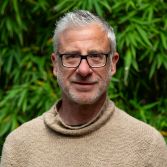 |
Matt’s main research area is biogeography; focussing on modelling the spatial and temporal distribution of species, species traits, species assemblages, biotic and abiotic threats, ecosystem properties and landcover. This work has led to exploring the ways these data can be used to improve the efficient
deployment of regulation and investment effort for biodiversity conservation. Selected projects: Regional Forest Agreements (Primary Rainforest Mapping) Habitat distribution models (HDMs) Mapping vegetation extent and condition Selected publications matt.white@deeca.vic.gov.au |
Luke Woodford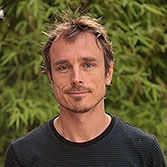 |
Luke has expert knowledge in terrestrial wildlife survey techniques, innovative technologies such as camera trapping and equipment associated with ecological research. Luke also has expertise in all aspects of the ecology and management techniques of invasive, overabundant and threatened species, including
exploring ways to accurately measure and improve the impact of introduced predator control programs. Selected projects: Deer-livestock interaction and disease Quantifying the impacts of deer hunting on wild dog and fox scavenging activity Testing methods to measure wild dog density using a novel camera trap-based approach Selected publications luke.woodford@deeca.vic.gov.au |
Dr Ben Woolcock | Ben Woolcock is a freshwater fish ecologist with over five years of experience working across freshwater ecosystems in southeastern Australia. Ben is highly experienced with fish survey and monitoring techniques using a range of methods including boat-based and backpack electrofishing, fyke netting, and seine netting in freshwater and estuarine environments. Ben currently works with a broad range of fish species, contributing to evidence-based ecological management. Selected projects: Tracking eel migration using satellites ben.woolcock@deeca.vic.gov.au |
Dr Henry Wootton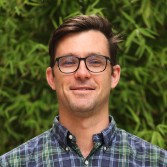 |
Henry provides expertise as a population modeler, where he studies the responses of aquatic and terrestrial biota to management actions such as the amelioration of cold-water pollution and releases of environmental flows. His research interests focus on the responses of fish populations to stressors,
such as fishing, warming climates and altered hydrological regimes, and asks questions across multiple scales (e.g. within reach to basin-wide). He also has extensive experience conducting field- and lab-based research in both freshwater and marine systems. Selected projects: Victorian Environmental Flows Monitoring and Assessment Program (VEFMAP) Flow-MER: Monitoring Evaluation and Research Program Selected publications henry.wootton@deeca.vic.gov.au |
Dr Jian Yen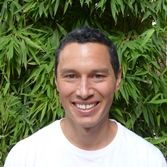
|
Jian develops quantitative tools to support biodiversity management in aquatic environments. He has a background in statistics and mathematics and has extensive experience in modelling population and community dynamics. Jian’s recent work focuses on making the most of existing data sets with models
that draw together different types of data. These models are being used to support environmental flow recommendations aimed at enhancing biodiversity in regulated rivers. Selected projects: Victorian Environmental Flows Monitoring and Assessment Program (VEFMAP) Selected publications jian.yen@deeca.vic.gov.au |
Page last updated: 18/09/25
